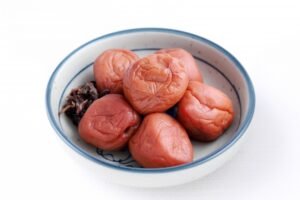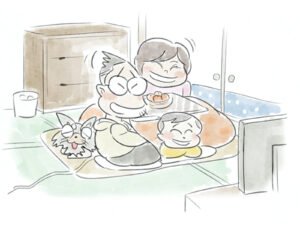Contents
ToggleWhen do Japanese people start their holidays in December?

The duration of the year-end and New Year holidays in Japan varies based on the industry. Here’s an example for December 2023 and January 2024:
Civil workers: Legally, their holidays usually start from December 29th to January 3rd.
Private company workers: The duration varies depending on the company. Some are the same with civil workers’ holidays, while others start from December 23rd to January 4th.
Bank workers: Their holidays are legally determined, spanning from December 31st to January 3rd every year.
Medical workers: The holiday period depends on the clinic or hospital, with many starting their break from December 29th to January 3rd.
Hospitality/retail workers: In these industries, it’s common for employees to work even during Christmas and New Year. However, they often work in shifts, taking turns for days off.
Deep cleaning-up


We have a tradition of thoroughly cleaning our homes before the year ends, known as ‘Oosouji’ (大掃除/おおそうじ). In addition to our regular cleaning routine, we take the time to deep clean areas that are often overlooked. Personally, in December, I make sure to clean my car, air conditioner, kitchen fryer, entrance, and balcony – places that I might usually skip during regular cleaning. I believe this is a common practice for most Japanese people.
This tradition has its roots in the custom of cleaning soot, which was a significant event for the imperial court in December. Year-end cleaning holds a deep historical significance in Japanese culture. It’s believed that by cleaning our homes, workplaces, and other spaces we frequent, we can celebrate the start of a new year and purify our bodies and minds. The act of removing accumulated soot throughout the year is symbolic, signifying a fresh start and welcoming the gods of the new year.
I find it to be a meaningful tradition. Many people around me begin their cleaning around mid-December, creating a sense of preparation for the upcoming year. I enjoy taking part in this collective effort to tidy up.
As a Japanese person, I hope to pass down the tradition of year-end cleaning with a sense of gratitude to the next generation.
Red and white year-end song festiva

We have a tradition of watching the Red and White Year-End Song Festival on New Year’s Eve, which we call ‘紅白歌合戦’ or ‘Kohaku Uta Gassen or こうはくうたがっせん.’ This TV show has been broadcasted by NHK for the past 74 years on the night of New Year’s Eve.
Many Japanese singers who have achieved something during the year get the opportunity to perform on the stage at the Red and White Year-End Song Festival. For Japanese singers, it’s a dream to be on stage during the New Year’s Eve.
However, the audience rating of this show has been decreasing, even though watching it with the family used to be a New Year’s Eve tradition. People, especially the younger generation, are more inclined to watch other TV shows or platforms like Netflix or Youtube. The tradition is gradually changing, and as someone who grew up with TV, I find it a little sad.
Toshikoshi Soba
Soba is a Japanese traditional noodle. We have a tradition of eating soba on December 31. The reason why we choose soba over udon or ramen on the last day of the year is that soba is easier to cut than any other noodles. This act symbolizes warding off misfortunes from the past year. There are no specific rules about what time you have to eat soba, as long as it’s during the day of December 31.

My perspective
I personally love how we spend time in December every year. As the end of the year approaches, Japanese people seem to get busy preparing for the upcoming year, such as cleaning up and organizing things. But at the same time, people also seem to get excited and happy about the coming year. I really like that atmosphere. And I feel a sense of wabi-sabi in December during the cold winter.
When it comes to taking days off, in my opinion, Japanese companies, including retail shops and convenience stores, should close even on Christmas or from Christmas so that employees can spend more time with their families, like in other countries. Of course, we have to pay the price for that. I can’t buy things that I want whenever I want from a convenience store. But what I think is, it leads us to be happier.
For anyone interested in delving into Japanese culture, feel free to check out the links below.
How do we celebrate Japanese New Year?
How to celebrate Christmas in Japan




Pingback: How do Japanese celebrate the Japanese New Year? - Japan Info. com